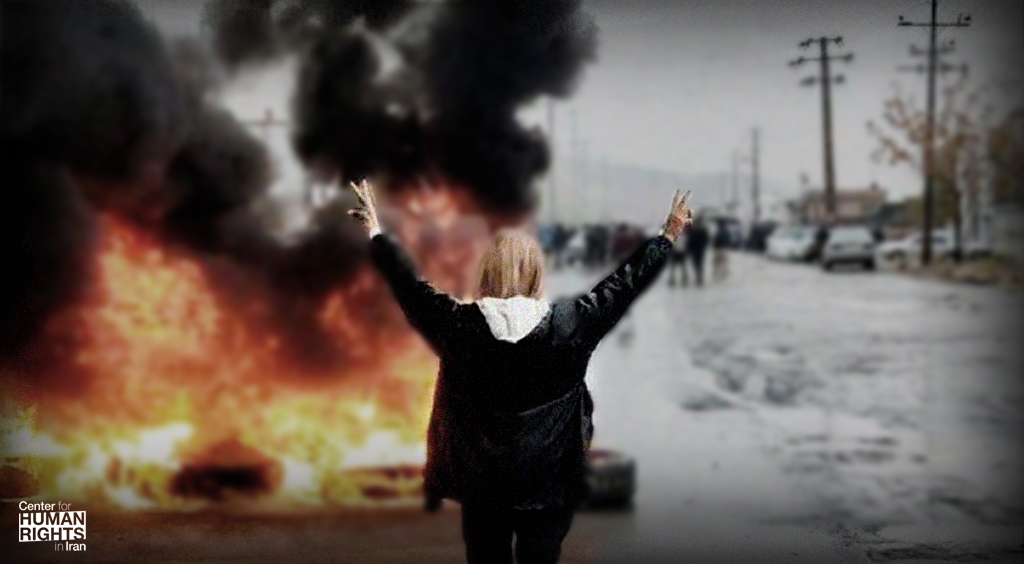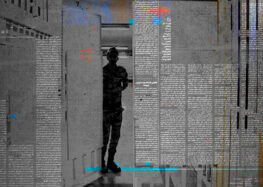Three More Children Killed as Iranian Merchants Close Shops in Solidarity with Uprising

November 18, 2022 – In a strong show of support for their country’s growing protest movement, and as children continue to be among those killed by state security forces, merchants in major cities closed their shops this week, which marked the third anniversary of the state’s violent suppression of the November 2019 protests.
“This government is gunning down children in a desperate attempt to crush the Iranian uprising,” said Hadi Ghaemi, executive director of the Center for Human Rights in Iran (CHRI).
“Yet the people are not backing down,” he added. “As atrocities mount the international community must come together to impose more meaningful and coordinated costs on the Islamic Republic for its ongoing crimes.”
Heeding calls by CHRI and other human rights organizations, the UN Human Rights Council will hold a special session in Geneva on November 24, at which CHRI will be in attendance to support the establishment of an independent mechanism to investigate and hold the Islamic Republic accountable for its ongoing human rights violations.
Children Shot as Merchants Strike in Major Blow to the State
In the southwestern city of Izeh, Khuzestan province, at least three children were killed by gunfire: Kian Pirfalak, 10, Artin Rahmani Piyani, 17, and Sepehr Maghsoudi, 14.
Iranian officials claimed the children were killed by “terrorists,” yet at her son’s funeral, Pirfalak’s mother risked imprisonment by directly disputing officials’ claims, stating instead that her son was killed as state security forces fired bullets at their passing car.
Meanwhile, from November 15-17, amid anti-state demonstrations in more than 30 cities, merchants closed their shops in bazaars and shopping districts cities including in the business hubs of Tehran, Mashhad, Isfahan, and Shiraz.
Iranian merchants, referred to as bazaaris in Persian, control the traditional marketplaces of Iran and are considered a crucial support base of the government.
“The simultaneous street protests and merchant strikes during these past three days were an important show of solidarity between different sectors across Iranian society, said Ghaemi. “The state is paying a high price as it continues to struggle to repress the people’s movement for freedom and justice.”
In the capital of Tehran, shop owners refused to open their shops.
“The people’s support for the strikes has been a lot stronger than anyone thought,” a local merchant who joined the strike for the entire three days told CHRI.
“I think next time there’s a strike, many more merchants will support the people,” added the source, who spoke on the condition of anonymity for security reasons.
The merchant estimated that as of November 17, the day the strike ended, about 40 percent of shops in the Tehran Bazaar had closed.
“One of the most important reasons why many bazaar merchants have joined the protests is public pressure,” a lawyer who requested anonymity for security purposes told CHRI.
“Many merchants have favorable contracts with the government but to save face with the people, they have decided to close their shops,” he added.
“Many big, influential merchants are being closely watched by the regime… A lot of them have strong government ties and it’s not clear if they will join the people’s uprising,” he said.
On November 15, police officials confirmed the arrests of 11 people in connection with the strikes in the Tehran Grand Bazaar.
“The state police have a duty to stop and deal with those few people who threaten to close down shops,” said Interior Minister Ahmad Vahid, a general of the Islamic Revolutionary Guard Corps, on November 16. “We won’t allow them to cause trouble for businesses.”
“The riots have had a negative psychological impact on some people and there has been a disruption in businesses,” said acting Tehran police chief Ghasem Rezaei on November 17. “The police… will never allow rioters to reach their goals.”
On November 17, In Qazvin, northwest Iran, a woman without a hijab was urging merchants to close down their shops before she was arrested.
In Kurdistan Province’s capital Sanandaj, the city’s governor Hassan Asgari warned he would not tolerate efforts to intimidate merchants into closing their shops “as a gift to the anti-revolutionaries.”
Meanwhile, workers went on strike at the state-owned Esfahan Steel Company on November 17 to demand higher wages.
At Least 17 Killed This Week Alone
Outside of the bazaars, the killing by state security forces of at least three children this week has put into sharp focus the extent the government will go to crush the Iranian protest movement, which erupted onto the streets in September and has since spread into more than 140 cities.
The protests are also ongoing despite at least 381 protesters being killed, including 57 children, and more than 16,000 arrested, according to the Human Rights Activist News Agency.
Across Iran this week, as in previous weeks, protesters in many cities—especially in the provinces of Khuzestan, Kurdistan, and Sistan and Baluchestan—were met with gunfire and teargas launched by state security forces.
At least 17 were killed in the following cities according to research by CHRI:
- Milad Maarofi, Bukan, Kurdistan province, killed November 17
- Salar Mojaver, Bukan, Kurdistan province, killed November 16
- Mohammad Hasanzadeh, Bukan, Kurdistan province, killed November 16
- Borhan Karami, Kamyaran, Kurdistan province, killed November 16
- Foad Mohammadi, Kamyaran, Kurdistan province, killed November 15
- Azad Hossianpour,Mahabad, West Azerbaijan province, killed November 17
- Ali Abaasi, Semirom, Isfahan province, killed November 17
- Morad Bahramian,Semirom, Isfahan Province, killed November 17
- Moslem Hoshangi,Semirom, Isfahan Province, killed November 17.
- Hamed Molaei, Shahrdashti, Hormozgan province, killed November 16
- Reza Roohi, Tehran, Tehran province, killed November 16
- Aylar Haaghi, Tabriz, East Azerbaijan province, killed November 16
- Issa Biglari,Sanandaj, Kurdistan province, killed November 16
- Sepehr Esmaieli , Ghazvin, Ghazvin province, killed November 15
- Kian Pirfalak, (10-years-old), Izeh, Khuzestan province, killed November 16
- Artin Rahmani Piyani, (17-years-old), Izeh, Khuzestan province, killed November 16
- Sepehr Maghsoudi, (14-years-old), Izeh, Khuzestan province, killed November 16
“Outrage is growing across Iran as young women and men continue to stand against the state’s brutality,” said Ghaemi. “The world must enlist concrete measures to support this bravery and sacrifice.”
Editor’s Note: This article was revised on January 12, 2022, to note that Artin Rahmani Piyani was 17-years-old at the time of his killing.






